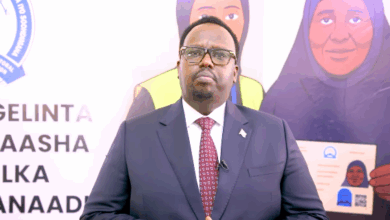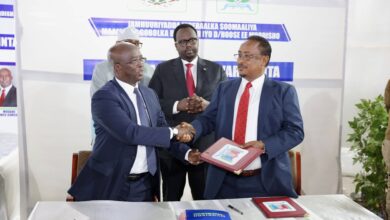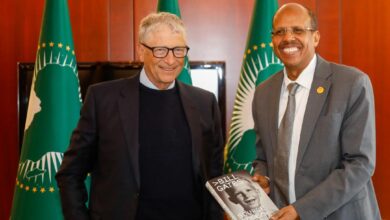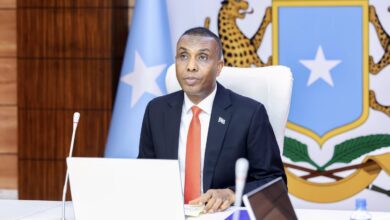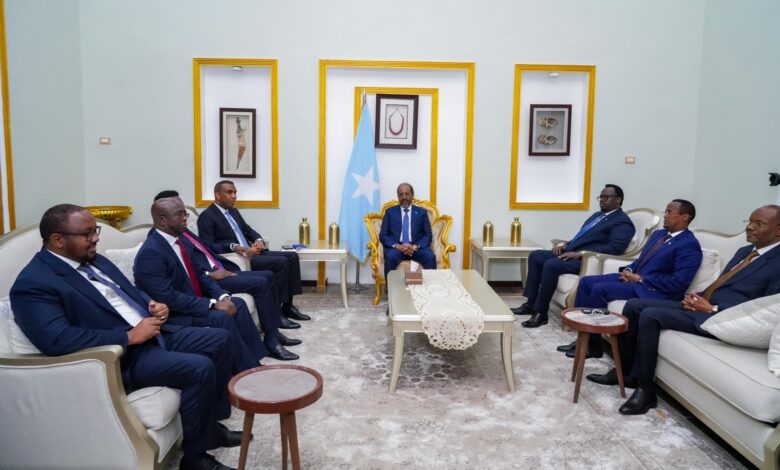
Mogadishu (LM), Somalia’s delicate democratic transition is unraveling at an alarming pace. President Hassan Sheikh Mohamud‘s decision to replace the National Consultative Council (NCC), a platform for federal-regional dialogue, with his Justice and Solidarity Party (JSP) signals a dangerous shift toward centralized authoritarian rule. This move threatens to undo a decade of political progress and rekindle the destructive forces that plunged Somalia into chaos in 1991.
Somalia remains a fragmented nation with sovereignty divided among various competing regional power centers. This situation necessitates a federal system, which acts as a safeguard against excessive centralization and provides an institutional framework for negotiating equitable power-sharing arrangements and ensuring fair resource distribution.
Yet under President HSM’s administration, this vital governance structure has been systematically undermined. The NCC theoretically the cornerstone of federal dialogue, now operates as a hollow institution. Its agenda is unilaterally set by the presidency, its discussions reduced to performative exercises, and its membership carefully curated to exclude meaningful dissent.
This disturbing transformation evokes Somalia’s most authoritarian periods. The Justice and Solidarity Party’s (JSP) monopolization of power, concentrating authority within a single political faction, resembles the one-party dominance of the Siad Barre era. The current administration maintains democratic pretenses while steadily consolidating control within an elite circle, recreating the very conditions that historically fueled Somalia’s collapse.
The consequences are profound: what was conceived as a system of checks and balances now risks becoming another chapter in Somalia’s long history of centralized rule and its inevitable destabilizing effects. The consequences of this exclusionary approach are manifesting across three critical fronts:
1. Security Breakdown:
A fractured political leadership has left Somalia’s counterterrorism efforts in disarray. The national army, crippled by corruption and politicization, struggles to contain an emboldened Al-Shabaab.
2. Constitutional Crisis:
The systematic sidelining of opposition voices and the deliberate marginalization of key federal states, particularly Puntland and Jubaland, has brought Somalia to the brink of constitutional collapse. President Mohamud’s apparent strategy to extend his rule through an accelerated, unrealistic electoral timeline threatens to spark violent unrest, echoing the conflicts that marred previous election periods. This dangerous pattern raises alarms that Somalia may be repeating its most tragic political mistakes instead of learning from them.
3. International Retreat:
While the U.S. has voiced opposition to the government’s democratic backsliding, diminishing international support threatens to collapse Somalia’s already fragile state institutions. Compounding these crises, the administration’s reliance on corrupt practices—particularly illegal land grabs displacing thousands—is fueling public outrage and strengthening extremist recruitment. The very conditions that gave rise to Al-Shabaab are being recreated.
Averting Catastrophe:
President Mohamud’s rhetorical commitment to national dialogue must translate into concrete action: First, by fully reinstating the NCC as an authentic forum for federal-state dialogue that meaningfully incorporates opposition representatives and civil society in all security and electoral planning. Second, through establishing rigorous accountability mechanisms that condition international assistance on measurable democratic progress, while authorizing UN investigators to pursue cases against corrupt
Somalia has endured dictatorship, civil war, and extremism, each leaving deep scars. Now is the moment for regional leaders, opposition politicians, civil society, diaspora activists, and the international community to unite in defense of federalism, accountability, and democratic principles. The alternative is a return to the abyss that Somalia has fought so hard to escape.
Written by: MP Abdirahman Abdishakur Warsame, Leader of Wadajir Party.
Leadership Magazine




